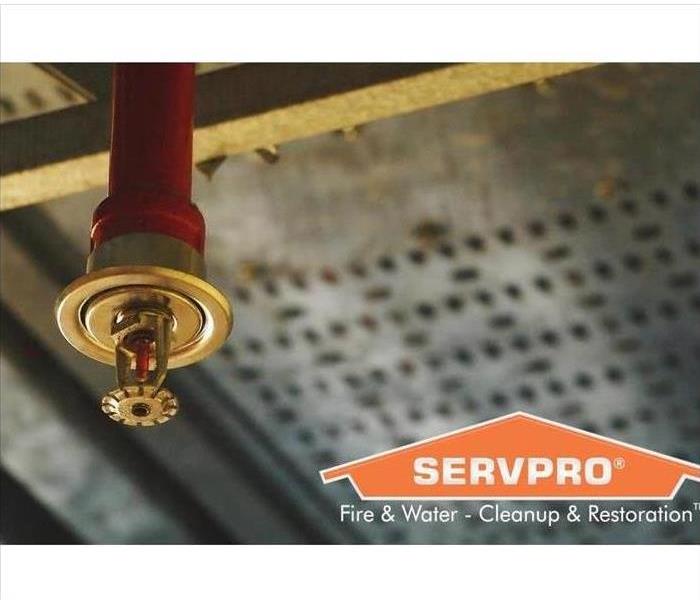Regularly Inspect your Fire Sprinkler System
2/1/2021 (Permalink)
If your business has a fire sprinkler, you may have peace of mind that you are ready for the unexpected. While they are designed to last and work like a charm, that only happens if they are properly maintained. If regular inspections and testing aren’t complete, they may accidentally go off, which may require a water damage and restoration professional for the fire sprinkler cleanup. Even worse, they may not go off when they need to, which no business wants to happen.
Inspection Schedule
A fire suppression system needs regular visual inspections. The following schedule is recommended:
- Dry, pre-action and deluge sprinklers should be check weekly while wet pipe ones can be done monthly.
- Regardless of type, inspect flow alarm, valve supervisory alarm and supervisory signal devices every three months. Include a check of the control valves and hydraulic nameplates.
- Check bracing, pipes, fitting, signage and spare sprinklers every year.
- An internal inspection is recommended every five years.
Testing Schedule
Along with inspections, a fire sprinkler system should be regularly tested. These are in-depth checks to ensure all components are in working order.
The mechanical elements should be tested every three months.
Van and pressure switch devices should be thoroughly checked every six months.
More comprehensive testing should be completed annually. It is best to have a certified professional help. The process involves checking every facet of the system, including water flow, antifreeze concentration, alarms and trip tests.
If you have dry sprinklers, testing or replacement is recommended after 10 years. Fast response systems need a full test every 20 years while standard response sprinklers need it after 50 years in use. Both should have 10-years tests completed after that.
A fire sprinkler is an important safety component of any business. Be sure to stay on track with inspections and testing to ensure they work when they need to.






 24/7 Emergency Service
24/7 Emergency Service
